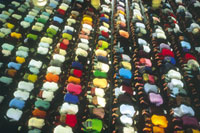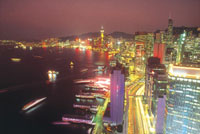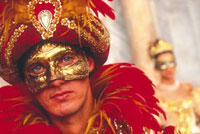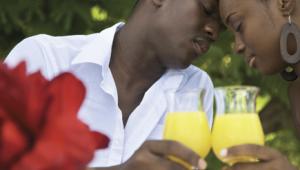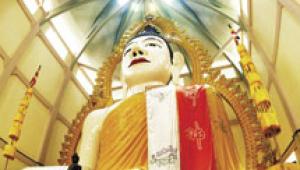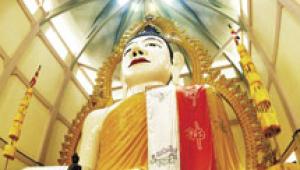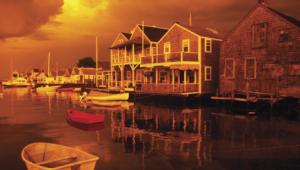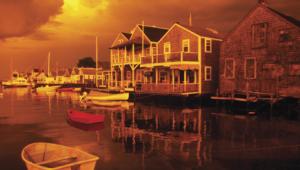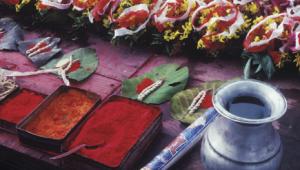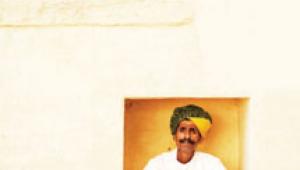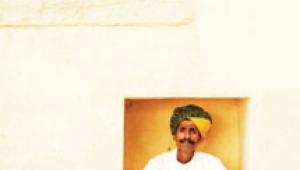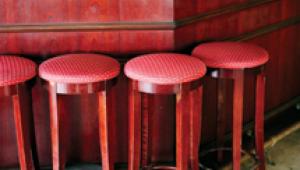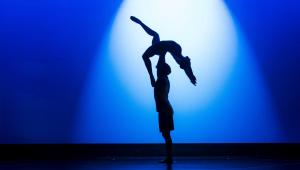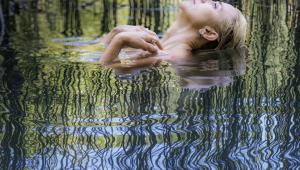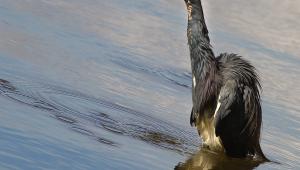Passport
Best Behavior
When I'm going to be photographing in another country, whether on an assignment for a client or an assignment for myself to produce stock images, there are three things I'm acutely aware of: my own safety; the need for me to be respectful of cultures other than my own; and, of course, the need to get the best photographs. To help accomplish the latter, one thing I almost always do is hire a local, English-speaking translator and guide. Even though I've prepared ahead of time and know where and what I'm going to photograph, a guide will often know of interesting spots only a local resident is aware of. Sometimes I may know the kind of pictures I need, but not the specific place to get them or exactly how to get there. And guides will often know the patterns of tourist traffic and when the best light strikes a particular place. Finding guides and translators is relatively easy. If an assignment provides the funding, I'll stay in an American-type hotel with an English-speaking concierge and always go through the front desk to find a guide. If I'm in a budget-priced hotel because of budget constraints, I'll ask around in the hotel or call the equivalent of a local convention and visitors bureau. I've found that most hotels are very familiar with a request for a guide/translator. They understand I'm a photographer and know what I'm looking for; they get these requests from writers and travel shooters frequently. |
|||
If there's no guide or translator available--which is rare, but has happened--an option in a big city is for me to spend my first day on a tour bus, not for the purpose of getting a lot of pictures, but just to see as many places as I can so I know what to return to. On the tour I might bring a point-and-shoot camera, enjoy the sites, take a few snapshots and make some notes. Then I can take a cab the next day. When it comes to safety, common sense prevails, and the rules for a photographer aren't that different from those for any tourist. I always keep my money in a safety deposit box in the hotel and carry only a portion each day. I never take my key out with me; I'll always leave it at the front desk. I always keep the television on in the room when I'm out. And in some locales, I'll ask for floor security. In China, for example, many hotels have individual security guards on each floor, and you can hire someone who'll patrol the hallways. That doesn't always work, though. A half dozen years ago in China the floor security person allowed someone in in the middle of night--let's call her a lady looking for business. She'd obviously paid off the floor security to get the key to the room, and she just came on in--and was just as quickly invited to leave. Because of that incident, I now carry with me the best safety precaution I've ever found--a $2 wedge-shaped rubber doorstop. It's always in my camera bag and always firmly in place on the inside of the door whenever I'm in my room, regardless of the hotel I'm in. It's simple and very effective--you'd really have to batter a door down to get through once that little stopper's in place. |
|||
For safety, I also always carry my AT&T calling card. I bought a world cell phone, which I can use most anywhere for direct-dial contact. And with the Internet and hotmail, I need only an Internet cafe to stay in touch. As far as respect for other cultures, a lot of that is common sense, too. You have to do your homework and be aware of the customs of the country, especially what you can and can't photograph. In certain places the "freedom of subjects" privilege that we enjoy here doesn't apply. In Islamic countries, for example, it may not be a good idea to try to photograph women or certain places of worship. Whatever the people and things that a country's religion or social standards don't allow you to photograph, you should know ahead of time. I know going in what the rules are, and I respect them. But I still have to get the photographs, so I walk that fine line between forgiveness and permission. Do you ask permission to photograph someone or something or do you just shoot and if there's an objection, apologize and ask forgiveness? For the most part, when you know you're somewhat intrusive and interfering in the culture of a country, it's always best to first get someone who speaks the language to ask permission and tell people what you're doing. That doesn't mean that you necessarily take no for an answer. Polite persistence can pay off. For instance, at one of the largest Islamic mosques in Singapore they frown on photographers, particularly ones who want to get inside to shoot. And, of course, that's exactly what photographers want--the beautiful, colorful image of thousands of people praying. When I went to Singapore on a book project, I went to the mosque and asked the guards outside for permission to photograph inside. They said no. I went back the following day; again, they said no. I went a third day and they finally said okay. I said basically the same things each day, hiding nothing. I'm a photographer, I said, working on a book project, would it be possible...? I spoke to the same guards each day, gave them a little more detail each time, said I really needed to get the photographs for my job and finally I got permission. In situations like that the temptation is to offer something, to say, "It would be worth a lot to me, and I'd like to make you happy about it, too," but I don't like to do that. It sets a bad precedent and makes it difficult for others who come later, whether they're professional or amateur photographers. But in Singapore I made it clear that I was more than happy to make a small donation to the mosque. One of the most important things I've found is to always have an "assignment," even when I don't. When I'm shooting for stock or taking extra time after shooting for a client, I'll create my own assignment just so I can sound official. I can't tell people I'm on a stock shoot because it's hard to explain what that's all about, and I certainly don't want it to appear that I'm a tourist just walking around taking pictures, which is valid, but won't help me. I say I'm a commercial photographer from Dallas, and I'm working on a personal publishing project on aspects of cultures of the world. The specifics don't matter; what matters is that what I'm doing is a job, and being on the job is something people understand and can identify with. If you come up as a tourist, it's a big yawn to them, a big "who cares?" But if you come to them as someone who has work to do, they understand that--they have work, they have jobs, and I think they're more inclined to help you do yours. So you might consider thinking about what you're shooting and coming up with a purpose for it. If you apply that principle, I think it'll give you not only a sense of purpose but a certain boldness to get the job done. I find it's very easy to use "assignment opportunities" to basically shoot anything I want. I rarely run into anything I can't get. I'm so persistent, I'll keep trying until I get it. A lot of folks aren't like that because I think they never thought of self-assigning, and self-assigning empowers you, gives you emotional credentials to go into a place and get what you need. It matters how you look, too. You can't look like a tourist--no loud shirts or short pants. Casual is okay, but it's casual professional--neat, clean, well-dressed, because people see you before they talk to you. Of course, just to confuse things, there's the reverse psychology aspect: places that won't allow professionals in will allow tourists. Dress down, carry a point-and-shoot and pretend to be a tourist. Not my way of doing things, but I know people who do it and for whom it works. As so many other aspects of photography, it's your call. |
